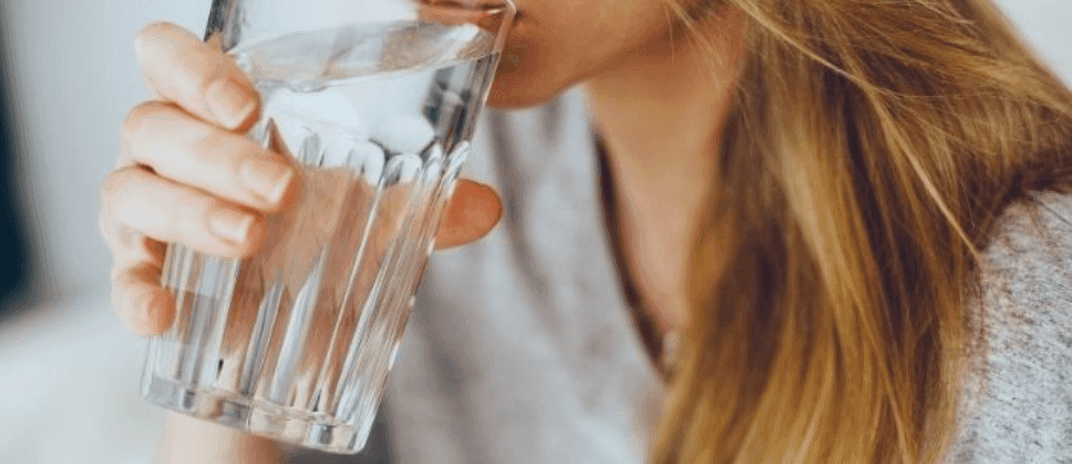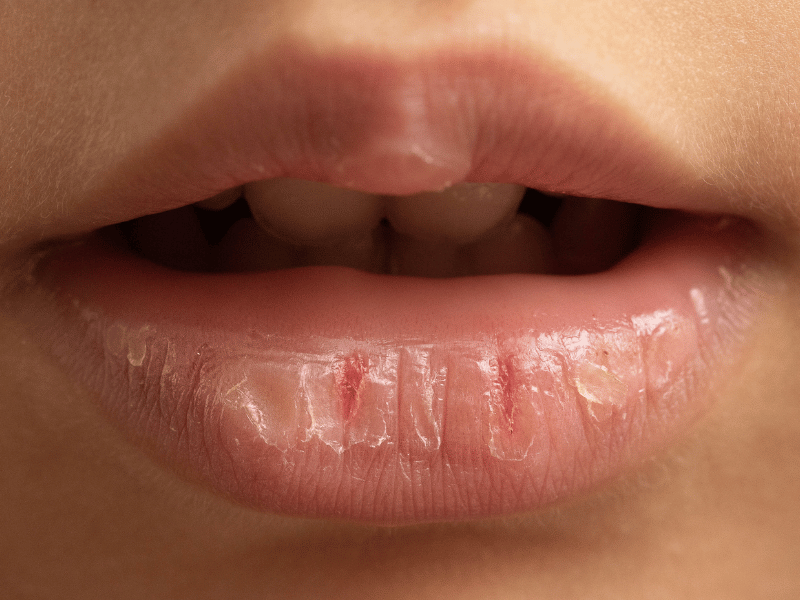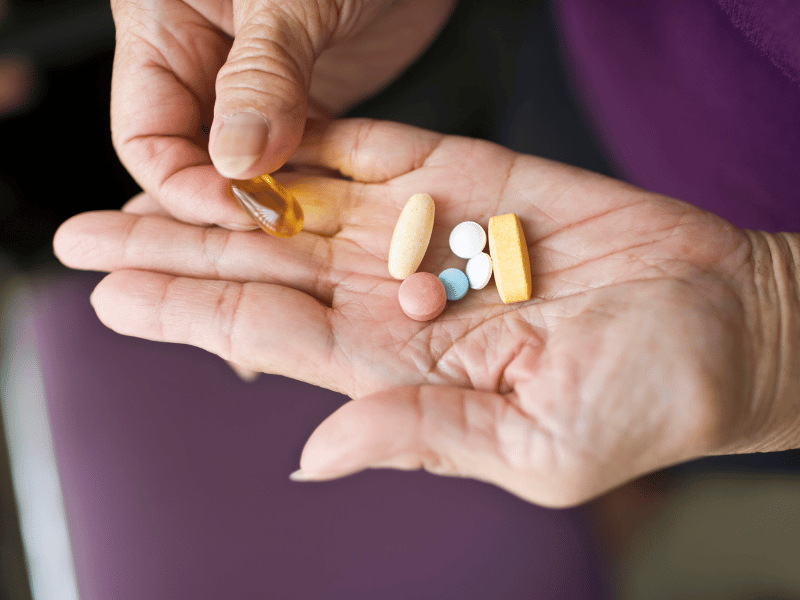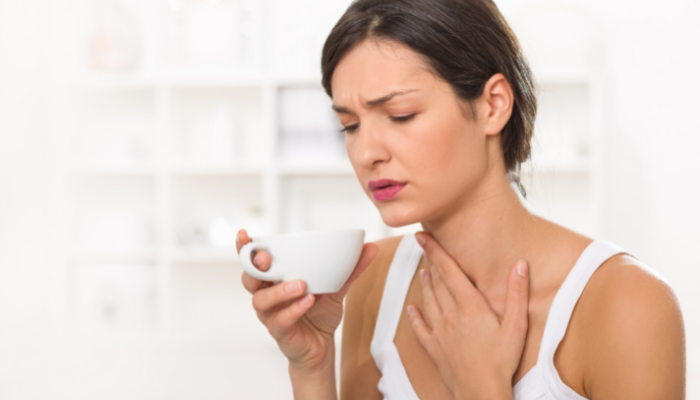


Do you always wake up feeling like your mouth is dry and uncomfortable? Does it make you feel like reaching out for a glass of water immediately? Do you find you have a bad taste in your mouth once you wake up? If your answer to these questions is yes, then you might be experiencing dry mouth while sleeping.
In this article, we’ll explore the possible causes of dry mouth at night, its effects on your well-being, and practical solutions to keep your mouth hydrated at night.

A dry mouth, also called xerostomia, refers to a health condition that occurs when you don’t make enough saliva to keep your mouth wet [1]. A dry mouth can happen sometimes when nervous or stressed. However, if you’re experiencing it for an extended period, it could cause complications such as difficulty chewing, swallowing, or talking.
Additionally, the lack of saliva in a dry mouth can increase the risk of tooth decay or gum disease due to bacteria accumulation.
A dry mouth may result in symptoms such as:

The reasons for dry mouth when waking up could be categorized into the following 6 aspects.
Your dry mouth may be intricately linked to your sleep habits, particularly if you find yourself waking up with a parched sensation. Having a blocked nose not only causes you to snore but it also leads to you having to breathe out of your mouth [2]. Mouth breathing during sleep causes airflow to be more pronounced, causing a rapid evaporation of saliva and leaving the oral cavity dry.
Xerostomia or dry mouth symptoms are also common in patients with sleep apnea compared to those without this condition [3].

Dry mouth is a prevalent side effect associated with the use of various medications, including medications used for allergies, antidepressants, stimulant medications that treat ADHD, prescriptions for pain and anxiety, and mood stabilizers [4]. The pharmacological compounds in these medications can interfere with the normal functioning of salivary glands, leading to a reduced production of saliva. This decrease in saliva flow is a key contributor to the sensation of dry mouth.
Certain medical conditions, such as diabetes, stroke, and Alzheimer’s disease, can contribute to the development of dry mouth. In individuals with diabetes, persistent high blood sugar levels can lead to increased urine production, potentially causing dehydration and subsequent dry mouth [5].
Stroke survivors may experience difficulties with swallowing and altered salivary gland function, leading to reduced saliva production. Alzheimer’s disease, with its complex neurological impact, can also influence the body’s ability to regulate hydration levels, contributing to dry mouth.
Consuming alcohol can exacerbate dry mouth as it possesses acidic properties, contributing to dehydration and potential dental issues. The acidity in alcoholic beverages can further compromise oral health, making individuals more susceptible to conditions like tooth decay. Additionally, tobacco use can alter the rate of salivary flow, diminishing the natural protective effects of saliva and impacting overall oral health.
Radiation therapy to the head and neck area can cause dry mouth symptoms. Chemotherapy can damage and cause inflammation in the salivary glands, resulting in a lesser production of saliva. As a result, this leads to dry mouth [6], [2].

Aging people tend to experience dry mouth more frequently. Some research has shown that 30 percent of adults over 65 years old and nearly 40 percent of adults over age 80 years may have this condition due to polypharmacy— the use of many medications at the same time [7].
See also: Are Your Medications Affecting Sleep At Night?

A dry mouth can be an unpleasant and uncomfortable experience for anyone. Be it a temporary or a long-lasting issue, here are some treatment options that can help with it:
If your dry mouth is severe or persistent or causes difficulty with eating or swallowing, you are strongly recommended to consult with your doctor for further advice and treatment.
Waking up with a dry mouth can be more than just an annoyance, it can affect your oral health, comfort, and overall well-being. Whether it’s caused by mouth breathing, medication,s or underlying medical conditions, taking steps to stay hydrated can help to significantly reduce the discomfort.
If you’re looking for more ways to improve your sleep and wake up refreshed, try ShutEye® app. ShutEye offers personalized solutions from soothing sleep sounds to sleep tracking tools to help you sleep better at night. Try it for FREE today!
American Cancer Society (2024) Mouth Dryness or Thick Saliva [online]. Available at: https://www.cancer.org/cancer/managing-cancer/side-effects/eating-problems/dry-mouth.html
Cannon, I., Robinson-Barella, A., McLellan, G., and Ramsay, S. E. (2023) From Drugs to Dry Mouth: A Systematic Review Exploring Oral and Psychological Health Conditions Associated with Dry Mouth in Older Adults with Polypharmacy. Drugs & aging, 40(4), 307–316 [online]. Available at: https://doi.org/10.1007/s40266-023-01017-5
Fletcher, J. (2021) What is the connection between dry mouth and diabetes? [online]. Available at: https://www.medicalnewstoday.com/articles/dry-mouth-and-diabetes
Murdock, J. (2024) Is Your Medication Causing Dry Mouth? [online]. Available at: https://www.goodrx.com/drugs/side-effects/dry-mouth-are-your-medications-to-blame
National Institute of Dental and Craniofacial Research (2024) Dry Mouth [online]. Available at: https://www.nidcr.nih.gov/health-info/dry-mouth
NHS Inform (2022) Dry Mouth [online]. Available at: https://www.nhsinform.scot/illnesses-and-conditions/mouth/dry-mouth/
Pico-Orozco, J., Carrasco-Llatas, M., Silvestre, J., and Silvestre-Rangil, J. (2020) Xerostomia in patients with sleep apnea-hypopnea syndrome: A prospective case-control study. Journal of Clinical and Experimental Dentistry, 12(8), e708 [online]. Available at: https://doi.org/10.4317/jced.56593